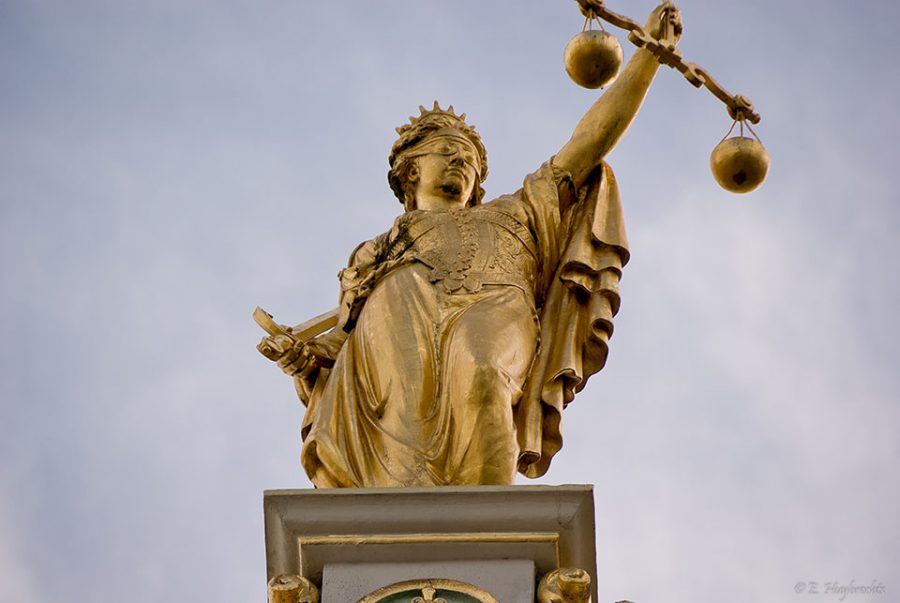Doublethink makes legal abuse possible
Trump administration will use the Constitution to make the impossible inevitable.
May 10, 2017
Many Americans quipped after the last presidential election that the constitution and the rule of law will protect the country from any encroachments or future violations made by the current President of the United States. The dominant mentality among many students and numerous Americans, regardless of their view on Trump, comfortably subscribe to the notion that the rule of law and the various institutions of American democracy will protect them if the president ever breaks the law. This interpretation cannot be more wrong and students and Americans alike must look at recent history to see that the rule of law will not protect the domestic and foreign interests of the country.
The justification of abuse
Writer and human rights activist Jordan Von Manalastas wrote in an article published by Jacobin Magazine on how the rule of law will not stop, but in fact enable and justify future abuses made by the Trump administration. According to Manalastas, “Trump doesn’t see the law as an object to uphold or to transform, but as an instrument of business, a weapon of the deal.” This enlightening view of the presidency, while certainly unpopular with Washington insiders, is yet to be adopted by the majority of the American population. For someone to hold the aforementioned view of the rule of law is to subsequently acknowledge the premise that there is a historically systematic problem with how the law is used by the president.
What is considered legal by a nation’s government does not necessarily mean an act justified by that law is morally right or politically sound. Coined by British novelist George Orwell, the term doublethink can be appropriately used to describe the way the Constitution has been used to justify abuse. Orwell claimed “doublethink means the power of holding two contradictory beliefs in one’s mind simultaneously, and accepting both of them.”
Great prominence
Consider looking at the past to see examples of this doublethink so prevalent in American society. This year marks the 75th anniversary of the signing of Executive Order 9066 by the Roosevelt administration. While the United States were sending troops to the European front to fight Nazi Germany, the Roosevelt administration rounded up 120,000 people of Japanese ancestry into multiple internment camps dispersed throughout some of the nation’s most geographically desolate areas. In the postwar era, numerous Americans held the simultaneous beliefs that the internment and genocide of the Jewish people by Nazi Germany was wrong while the internment of Japanese-Americans was necessary and acceptable.
The Bush administration pledged their commitment to the Geneva Conventions while they created a new legal language to justify “enhanced interrogation” — a euphemism for torture, which is banned by the aforementioned conventions. The administration led by Barack Obama, a Nobel peace prize-winning president, faced little legal and institutional opposition as the administration maintained and expanded wars in seven different countries. “War is peace,” Orwell famously wrote in his bestselling fiction, “1984.”
Nothing will stop the Trump administration from using the law to maintain and expand wars in the Middle East or commit other abuses. The United States, still to this day, has not officially declared a war since World War II, but the conflicts fought in the jungles of Vietnam or the deserts of Afghanistan can certainly be identified as wars by those who fought in them and by the citizens who funded it with their taxes.
Doublethink still prevails and the rule of law will be used to protect the abuses perpetrated by the Trump administration and future presidents.







